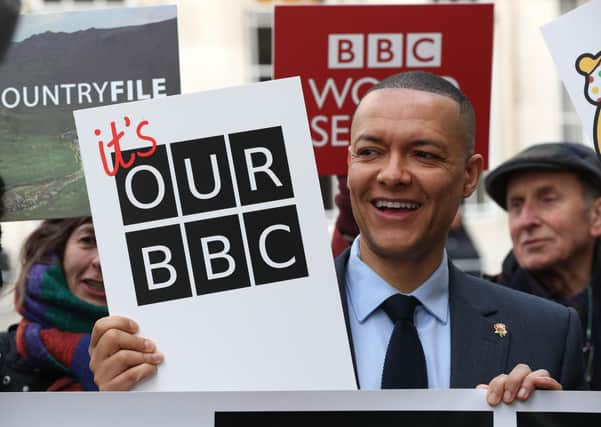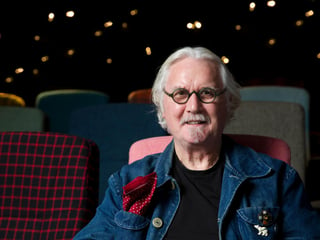Coronavirus crisis shows why the BBC is so special – Christine Jardine MSP


Our world is going to look very different at the end of this crisis.
The NHS, the welfare state and so many aspects of life are things we now recognise need much more than the lip service that the state has tended to pay in the past few years.
Advertisement
Hide AdAdvertisement
Hide AdBut there is one institution that I hope that is going to stay exactly as it is. The BBC.
If ever post-war generations doubted the value of a genuine public broadcasting service the past few weeks have surely dispelled that notion forever.
And the suggestion that the over 75s should pay for a TV license? Run that past the Government again in a few months and let’s see what happens.
From the warmth of nostalgia generated by bringing back some of our favourite comedies to using clips of current favourites to give us the kick up the backside we might have needed over social distancing, Auntie Beeb has it covered.
Yes other channels are available, and yes they are playing their part but somehow that license fee has never seemed such a bargain.
Fitness gurus from the 80s and 90s are back to help kick start the exercise regime you’ve been thinking about.
The archive shows from your childhood take you back to the safety of your family sofa when your legs didn’t quite yet touch the floor.
John and Greg keep you company in the kitchen as you try and make the Covid version of cordon bleu.
Advertisement
Hide AdAdvertisement
Hide AdMy personal favourites are those moments of Comedy Genius – like Miranda conducting her ensemble of kitchen implements – plucked from the archives to create brief but powerful reminders of how to stay safe.
A few years ago, in a different career, a broadcasting adviser from the United States told me that long running TV shows like Wheel of Fortune are often used as a gauge of the public response to the economic situation.
People return to old favourites in search of the security they need when they feel their health or livelihood is threatened.
Economic trends are then reflected in the audience figures.
I wonder how high the ratings for many of our old favourites on all channels will have climbed by the end of the Covid crisis.
But beyond entertainment there is another vital role that, if we were to change the funding set-up, abandon the license fee and consign the BBC to the competition of the pay-per-view market, might be lost.
In this crisis more than ever in my lifetime I am aware of those two words which set the BBC and to a less extent Channel 4, apart from the purely money-making platforms of the technological explosion: public service.
How many over 75s, or low-income households would have been able to afford pay per view services to keep up to date with health advice or social services?
Would those independent and international broadcasters have stepped into the educational breach as quickly – or as easily – as the Beeb?
Advertisement
Hide AdAdvertisement
Hide AdLast week the corporation announced the biggest educational push in its history, with 14 weeks of programmes aimed at replacing classes and both informing and entertaining our children at home. That is not to diminish the role that those commercially driven organisations and channels play in our lives.
ITV, Sky, Netflix and others play just as significant a role in entertaining, informing and generally distracting us from the troubled times.
But they do not have that public service commitment which is central to everything that the BBC does.
It is something which allows it to go much further than any of its competitors in providing what, for me, is the most important service at times like this.
The Rotary State of the Nation Loneliness Report 2019 found that turning to the television or radio is a vital to make us all feel less alone, although 27 per cent also speak to a pet and seven per cent speak to Alexa or Siri. Another 14 per cent of those surveyed said they went to the shop just to get out of the house and chat to someone, something we are all denied in the current crisis.
TV and radio have the unique potential to provide that missing contact. They can allow you to be alone yet part of a community at the same time.
How many of us recognise the feeling when that low level, but growing, hum of anxiety fades as you turn up the volume on Ken Bruce or Women’s Hour to re-establish old and cherished connection? The shared experience.
In this climate, our entertainers have transcended the role of the court jester or cooking instructor they may have been merely a few months ago to become our company and our contact with the wider world.
Advertisement
Hide AdAdvertisement
Hide AdWhen the economy, our business community and even our health have been thrown into a state of uncertainty, our broadcasters, and the BBC more than any other, provide comfort and continuity.
For many of us that has never mattered more.
A message from the Editor:
Thank you for reading this article on our website. While I have your attention, I also have an important request to make of you.
With the coronavirus lockdown having a major impact on many of our advertisers - and consequently the revenue we receive - we are more reliant than ever on you taking out a digital subscription.
Subscribe to scotsman.com and enjoy unlimited access to Scottish news and information online and on our app. With a digital subscription, you can read more than 5 articles, see fewer ads, enjoy faster load times, and get access to exclusive newsletters and content. Visit https://www.scotsman.com/subscriptions now to sign up.
Our journalism costs money and we rely on advertising, print and digital revenues to help to support them. By supporting us, we are able to support you in providing trusted, fact-checked content for this website.
Frank O’Donnell
Editorial Director
